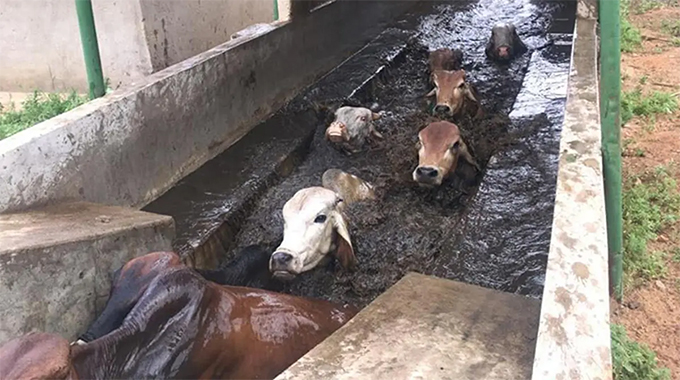‘Include crop by-products in warehouse receipting and trading’

Edgar Vhera Agriculture Specialist Writer
STAKEHOLDERS attending a commodity buyers breakfast meeting in Harare yesterday urged the Zimbabwe Mercantile Exchange (ZMX) to include by-products from listed commodities in warehouse receipting and on spot trading.
The call comes amid growing concerns that companies are exporting by-products in their time of glut production yet the country ends up importing them after running out of stock feeds.
Stockfeed Manufacturers Association of Zimbabwe executive administrator, Dr Reneth Mano said the ZMX trading platform had come at an opportune time when more products, among them wheat, are being incorporated into the trading platform.
“Grain millers end up with stockpiles of maize and wheat bran from their meal and flour processing operations. Their immediate desire is to get rid of these products from their store houses to avoid storage costs.
“They do so by selling them to stockfeed manufacturers. A glut in supply of the by-products strains manufacturers’ budgets, as they do not have capital to procure their annual requirements within a week or month’s time,” said Dr Mano.
The establishment of the trading commodity platform for the end products will take pressure off millers who must desist from exporting these raw products, as stockfeed manufacturers will need them later in the year.
“The same happens to oil expressers whose main interest is cooking oil, which accounts for 20 percent of cooking seed volume. After oil expression, cotton meal and hulls are produced and are offloaded to stockfeed manufacturers. It is our hope that these products, which are not controlled are traded back on ZMX spot and futures market,” he added.
The inclusion of by-products on the trading platform will present livestock producers, among other users of the products, with a low-hanging fruit that allows them to trim costs of production.
ZMX chief executive officer Mr Collen Tapfumaneyi responded to the suggestions saying their legal team was seized with the matter and would soon come up with mechanisms to help create a win-win scenario.
Incidentally, Stockfeed Manufacturers Association executive Director Dr Chrispen Sukume once remarked that they were the main consumer of cotton cake from oil expressers which they used as raw material in the manufacturing of cattle and dairy feeds.
“Our problem is that oil expressers from where we get cotton cake after the cotton seed crushing process is done, offer us the cake during the three to four months per year. During the cotton cake’s production, they expect local consumers to procure all their annual requirements but they may not have adequate funds to do so. They are then forced to import the cotton cake when it is no longer available locally.
“As a country we should not be importing cotton cake at all if oil expressers were to keep some in their warehouses for local sales later,” said Dr Sukume then.











Comments